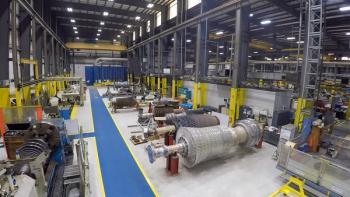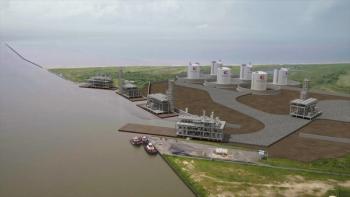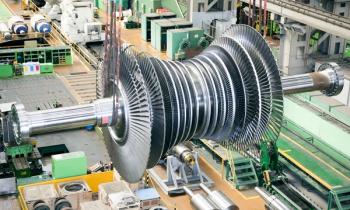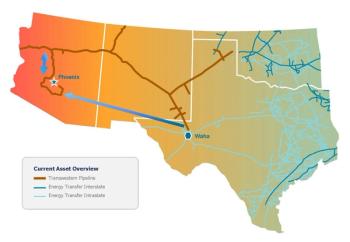
When gas turbines become lifelines
Raul Pereda, President and CEO, PW Power Systems LLC gives his take on the gas turbine market and his company's plans.
What is PWPS’ niche in the energy market?
PW Power Systems (PWPS) serves many different types of customers who need flexible and reliable power generation solutions. Typically, our customers have unique specifications or business challenges that require our team to bring a tailored approach to each project. From engineering design to installation to aftermarket services, PWPS distinguishes itself by working alongside customers to create and optimize custom solutions. Innovation is born from our seasoned professionals collaborating with new and long-term customers who appreciate the value of the relationships we sustain.
While our turbines are often installed for long-term, utility-scale operations, we also specialize in mobile emergency response. Our most compact and transportable power system, known as the FT8 MOBILEPAC gas turbine package, is widely used around the world with more than 130 units in operation. Each MOBILEPAC generates enough capacity to provide up to 30,000 homes with electricity.
Our power solutions have served as a lifeline to those in need. Whether it was connecting rural African communities in Guinea; restoring power at a downed plant in Venezuela; delivering electricity to the Caribbean island of Martinique during a high-season outage;or working on-site for Tokyo Electric Power Company (TEPCO) after the Tohoku earthquake in 2011 -- our solutions enable local communities around the world to have access to electricity even during difficult times.
What significant difference do you see in MOBILEPAC projects these days?
The MOBILEPAC gas turbine package continues to be the ideal technology for customers needing quick and easily installed generation. Sometimes their requirements derive from catastrophic events that necessitate emergency response or other events such as unplanned outages of a large central plant.
For example, in 2015, the Algerian city of M’Sila sustained a series of crippling power shortages when two of its main electricity generating plants shut down. M’Sila is a metropolis of more than a million people, and rolling blackouts would make it difficult for its people to experience the full spiritual and cultural experience of Islam’s holy month. Sonelgaz, the government-owned power company in Algeria, needed our help restoring the M’Sila grid to full capacity. We deployed 12 MOBILEPAC units, and by the second week of Ramadan, power was restored to the city and observant Muslims across the region broke the fast each evening with their family and friends. Furthermore, hospitals and local community centers were able to continue operating.
In addition to emergency response projects, the MOBILEPAC unit is being used in new power applications such as oil and gas. PWPS recently entered into an agreement with U.S. Well Services (USWS) to provide MOBILEPAC units to power electric hydraulic fracturing systems used in unconventional oil and gas production. Our partnership with USWS will increase power-generating capacity, mobility, and scalability for its next generation of electric frac fleets, while reducing capex.
Which geographical regions lend themselves to such specifications? And why?
Our products and services help customers worldwide. We provide energy security solutions to address many different situations ranging from simple peak load applications to more dynamic environments with high renewable penetration, isolated regions that require their own energy supplies, and emergencies that can arise anywhere.
Some recent examples include Puerto Rico, Mexico, and southern parts of the U.S. that were hit by severe storms. In 2017, five months after Hurricane Irma and Maria devastated the island of Puerto Rico and knocked out the country’s electricity system, 400,000 people were still left without power. PWPS continues to work with the energy providers in all these regions to see what more can be done to improve future grid resiliency.
PW Power Systems has seen a regular need for additional power units in developing regions such as North, Central, and West Africa. In countries where the power infrastructure is still being developed, our mobile technology can support existing grids. To date, our MOBILEPAC units have been deployed to Algeria, Guinea, and Sudan, and in June 2017, PWPS commissioned two MOBILEPAC units in Libya, providing fuel flexibility and high-reliability power to thousands of people, as well as supporting essential infrastructure.
How has the divestiture from P&W to Mitsubishi benefitted your business?
For PWPS, the most important thing is helping our customers be successful. Since joining the Mitsubishi Heavy Industries family in 2013, and then transitioning to its joint venture, Mitsubishi Hitachi Power Systems in 2017, PWPS continues to operate with the flexibility and speed that our customers require. Being part of MHPS allows us to take advantage of many synergies across the organization and leverage its tremendous global resources to serve the market better. Together, we are able to maximize opportunities with our worldwide market presence, gas turbine generation technology, and turnkey capabilities.
Are you developing any new technology in the existing models?
While our existing FT4000 and FT8 customers enjoy the exceptional performance and reliability of these products, we never stop looking for ways to improve. PWPS product developments increase the efficiency and flexibility of our packages and keep total cost of ownership low. As an OEM, we are continuously updating our products with new technology and material and design enhancements, as well as alternative fuel capabilities that our customers request. The fleet knowledge and experience that PWPS has accumulated inspire aftermarket advances for overhaul and repair, spare parts, and upgrades that ensure we meet customer needs for the life of each plant.
On both fronts, developing new technologies and exploring new ways to use existing technology, our objective is to accommodate even the most unique situations to deliver power worldwide.
As renewable capacity surges, gas turbines are an ideal solution to balance intermittent renewable power. In fact, PWPS recently signed a turnkey agreement with Zomet Energy to construct a 400-megawatt plant near Kiryat Gat, Israel, powered by an FT4000 gas turbine package. Deployment of renewable power and discovery of significant natural gas reserves in Israel have sparked a transition to cleaner and healthier power generation.
Newsletter
Power your knowledge with the latest in turbine technology, engineering advances, and energy solutions—subscribe to Turbomachinery International today.




